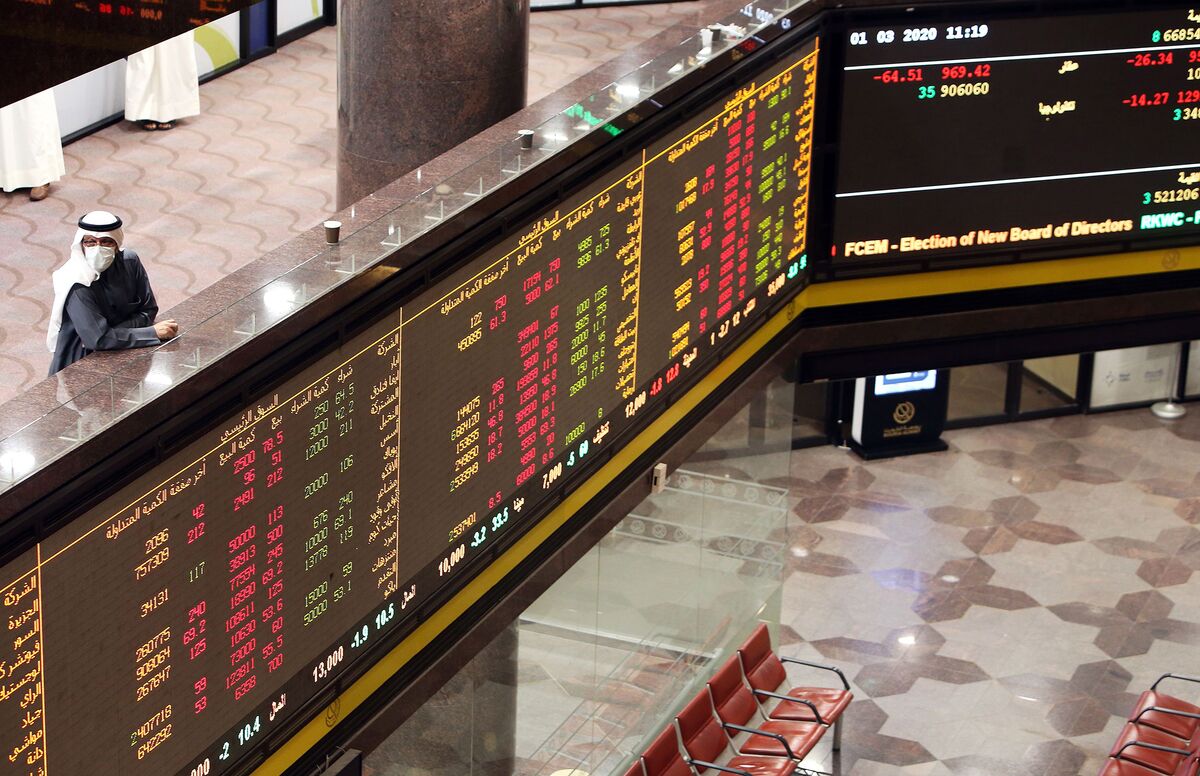Kuwait's equity market concluded Sunday's trading session with both the benchmark and weighted indexes registering losses.
The main indicator of the market's performance, the Kuwait Stock Exchange (KSE) price index, dipped 3.9 points to close at 7,272.1 points. The weighted index, which allocates greater weightage to large-capitalization stocks, mirrored this trend, shedding 4.8 points to end the day at 4,622.9 points.
This decline follows a period of gains for the Kuwaiti bourse, where its indexes had been on an upward trajectory in recent weeks. Analysts attributed the reversal to profit-taking by investors, who opted to cash in on their holdings after the recent upswing. Additionally, some market participants expressed anxieties regarding the global economic outlook, which may have contributed to the cautious trading sentiment.
The profit-taking hypothesis is supported by the trading activity observed during the session. While the specific details of the Kuwaiti market on that particular Sunday are unavailable, instances of profit-taking typically involve a rise in trading volume alongside a decline in stock prices. This pattern suggests that investors are selling their shares to capture the gains accrued during the preceding bullish period.
Another factor that could have influenced the market's direction is global economic uncertainty. The international economic landscape is currently facing numerous challenges, including geopolitical tensions, inflationary pressures, and potential interest rate hikes by major central banks. These issues can cause investors to become risk-averse, leading them to move their investments away from stocks and into perceived safer assets, such as bonds or gold.
The precise impact of these global factors on the Kuwaiti market on that specific day cannot be definitively determined without examining the prevailing news and market sentiment at the time. However, it is undeniable that global economic developments can exert a significant influence on investor behavior in all markets, including Kuwait.
The downward trend on the Kuwait Stock Exchange does not necessarily signal a long-term shift in the market's direction. Stock markets are inherently volatile, and short-term fluctuations are to be expected. The coming days and weeks will reveal whether this pullback represents a minor correction or the start of a more sustained decline.
Looking ahead, investors will be keeping a close eye on developments in the global economy, particularly concerning central bank policy decisions and geopolitical events. Additionally, the performance of major corporations listed on the Kuwaiti exchange will likely influence investor sentiment. If corporate earnings reports disappoint or the outlook for company profits weakens, this could lead to further selling pressure. Conversely, positive earnings surprises or a strengthening outlook for corporate profitability could entice investors back into the market and reverse the recent downward trend.

